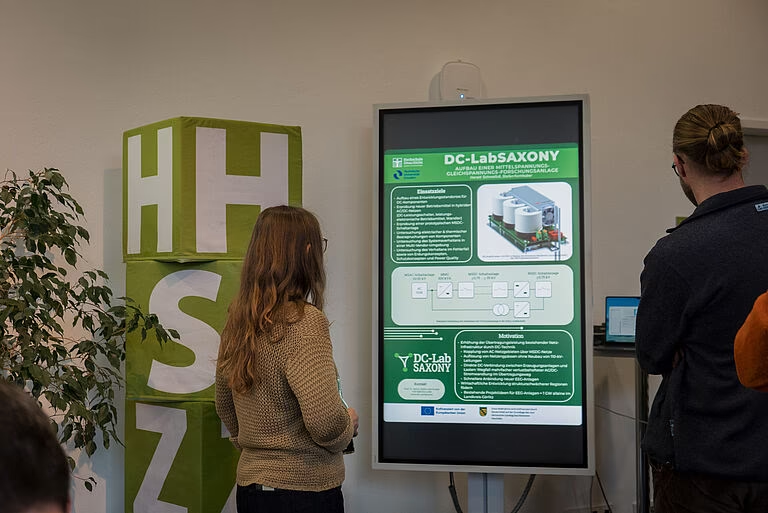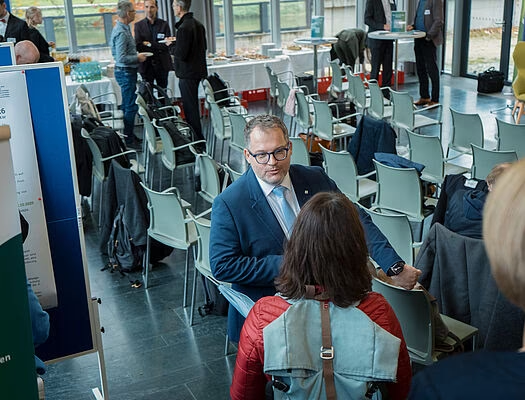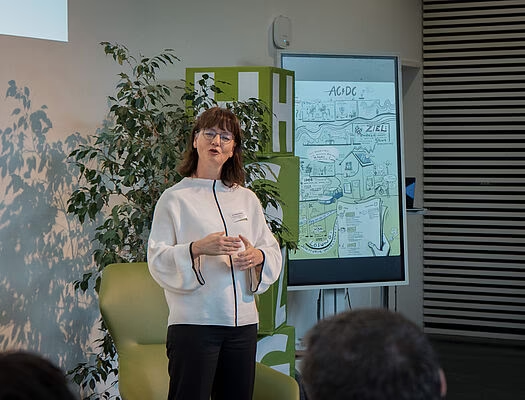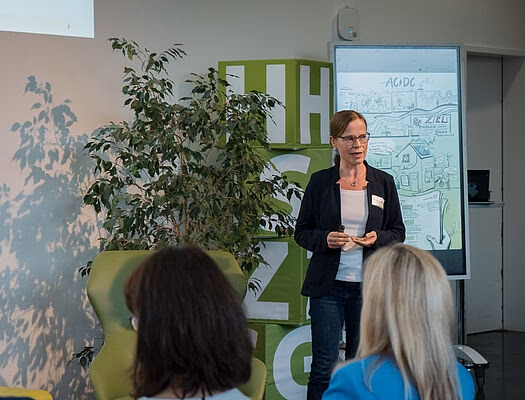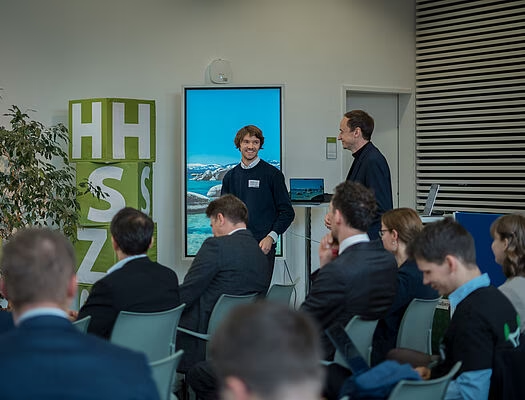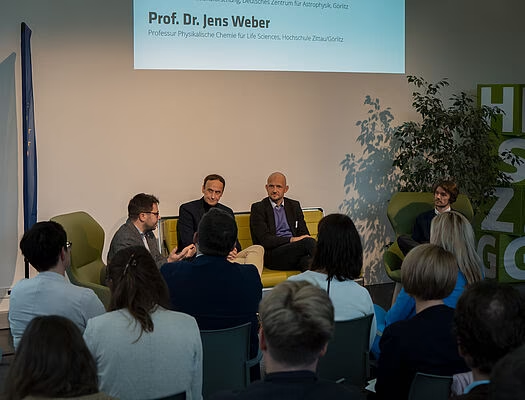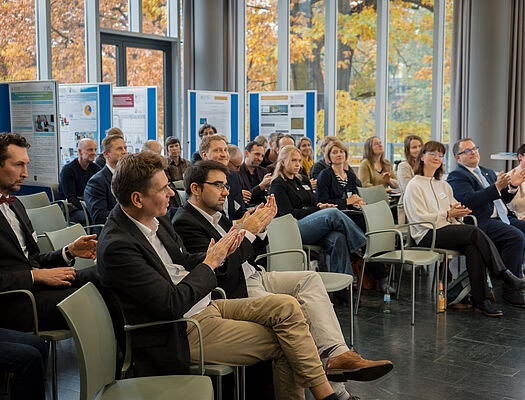On the Road to Innovation - Energies of the future
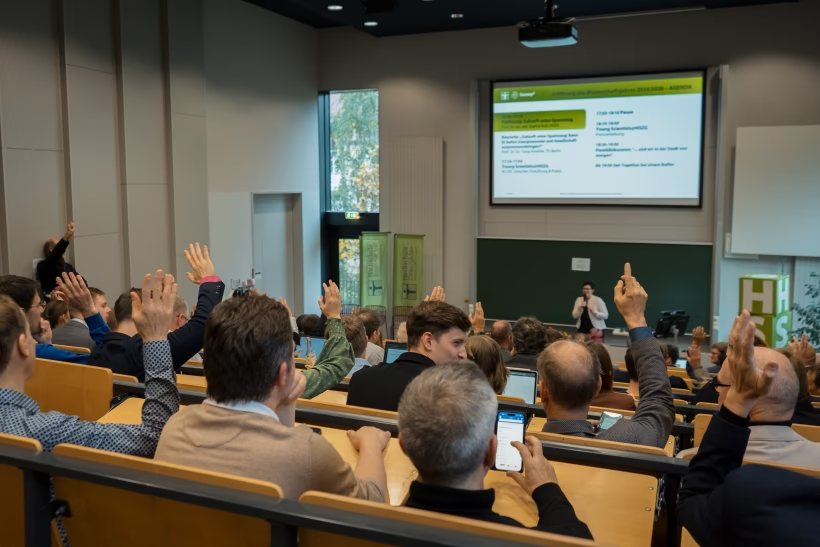
Opening of the Science Year 2025/26
From On the Road to Innovation - at the opening of the Science Year 2025/26
After the impulse on the German Center for Astrophysics and the subsequent panel discussion on the transformation process of Lusatia, the four EU-funded research projects answered the many questions of the guests. And while the first station of the three-part event format "On the Road Innovation" came to a lively end in the afternoon, the Zittau/Görlitz University of Applied Sciences opened its doors for the official opening of the Science Year 2025/2026. Moderated by Susanne Stump, Managing Director of futureSAX, Prof. Dr. rer. Pol. Sophia Keil from the Zittau/Görlitz University of Applied Sciences opened the event under the motto "Future under tension". This area of tension is particularly strong in Upper Lusatia and is also an opportunity to take the region to a new level. The motto therefore describes the state between challenge and hope as well as between risk and opportunity.
Picture gallery
Measuring gravitational waves to transform a region
Underground in Lusatia there are not only lignite deposits, but also massive granite rock, explained Dr. Andreas Otto, Head of Transformation Research at the German Centre for Astrophysics, in his impulse. This circumstance was a decisive location factor for the large-scale research center currently under construction: the creation of the Low Seismic Lab, deep underground, shielded from the majority of earthly radiation and interference signals. The goal: the detection of gravitational waves.
What still sounded like science fiction to the interested guests is set to produce new key technologies in the future that will extend into the fields of microelectronics, sensor technology, optics and AI. Dr. Stephan Meyer, District Administrator of the Görlitz district, also emphasized the importance of the large-scale research center for the transformation processes in the region during the joint panel discussion. Over 1,000 new jobs for scientific and non-scientific staff are to be created during the construction phase, and international talent, including top researchers from all over the world, will find a new home in Lusatia. However, research alone does not directly create jobs. It is all the more important to reach young people at an early stage and keep them in the region so that they can develop their own products and services.
Prof. Dr. Jens Weber from the Chair of Physical Chemistry for Life Sciences also emphasized how essential it is to involve companies in the emerging spiral of innovation. At the same time, he was concerned with the question of how to reach those people who do not take part in events such as "On the Road to Innovation" - especially in rural regions. "If we want innovation, we have to have the courage [...] and make room for chance."


